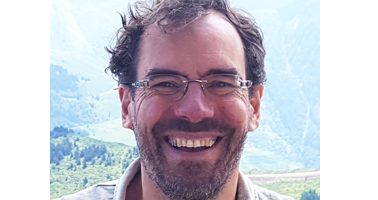Past Event: Oden Institute Seminar
Torbjörn E. Törnqvist, Professor, Department of Earth and Environmental Sciences, Tulane University
3:30 – 5PM
Thursday Mar 24, 2022
POB 6.304 & Zoom
**This seminar will be presented in person in POB 6.304 and via Zoom**
This presentation focuses on a coastline that ranks among the most rapidly subsiding low-elevation coastal zones in the world. Successfully projecting future rates of relative sea-level rise along the US Gulf Coast requires a comprehensive understanding of the range of processes that contribute to downward motion of the land surface that can be as high as order 10 mm/yr in this region. This involves deep processes such as isostatic adjustment due to changes in ice, water, and sediment loading along with faulting that collectively tend to produce relatively steady rates (order 1 mm/yr). This leaves a large portion of the total subsidence to be explained by shallower processes, including sediment compaction and fluid extraction. The former dominates in coastal wetlands, where recent work has shown that most compaction takes place in the uppermost 1-3 meters. The final portion of the talk will discuss recent results from a subsidence experiment that integrates various measurement techniques at one site in the Mississippi Delta.
Hosted by Clint Dawson and Bridget Scanlon.
Torbjörn E. Törnqvist received his degrees in Physical Geography from Utrecht University (PhD, 1993). He is currently the Vokes Geology Professor in the Department of Earth and Environmental Sciences at Tulane University, where he was Department Chair from 2012 to 2017. From 2006 to 2013, he served as the Director of the National Institute for Climatic Change Research Coastal Center, a US Department of Energy funding agency supporting basic research that aims to reduce the uncertainty about the future of coastal ecosystems nationwide due to climate and sea-level change. His research interests revolve around the evolution of rivers, deltas, coasts, and shallow oceans in response to climate and sea-level change over timescales ranging from the past decade to the past few hundred thousand years. This also includes studies on the evolution of the Earth’s climate (notably the relationship between ice sheets and sea level) since the peak of the last ice age, ~20,000 years ago. Other aspects of his work concern coastal subsidence as driven by a wide range of processes, the sustainability of coastal wetlands, and blue carbon. Current field studies by Törnqvist’s research group are focused on the Mississippi Delta and the adjacent US Gulf Coast.
